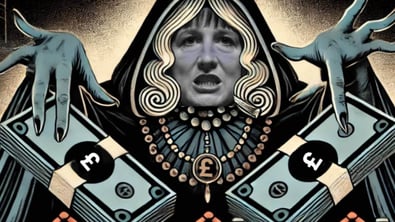A remortgage is when a new mortgage is taken out on a property.
This could be for a number of reasons, to a switch to a cheaper mortgage deal or to borrow money against the value of the property.
With a lot changing in the economy and mortgage payments dominating headlines in recent months, this blog post investigates is now the best time to remortgage?
What is remortgaging?
Remortgaging means changing mortgages, either by signing a new deal with a fresh lender or by changing deal with a current lender.
Having a mortgage is many people’s biggest financial commitment.
Remortgaging usually becomes an option when approaching the end of a particular interest rate offer period. This could be a fixed or variable rate.
On average 100,000 people are coming to the end of their current mortgage deal, amidst the backdrop of market uncertainty and interest rates levels not seen since 2008. Due to the current economic situation, it poses the question of whether now is the best time to remortgage?
Is now a good time to remortgage?
Mortgage rates began rising in December 2021 and rose at a faster rate over the summer.
These rates coincide with the Bank of England’s interest rate, known as the base rate. This has risen on eight consecutive occasions, taking it to its highest level since 2008. This had made it harder to find a good value deal.
However, markets have calmed since the appointment of Rishi Sunak as prime minister and Jeremy Hunt as chancellor.
When deciding whether or not to look into a fixed rate mortgage deal now, it is important to consider several factors.
There is no way of predicting the direction in which mortgage rates will head with any certainty.
While rates have begun to dip from a 14-year high, further rate rises could be on the way. The interest rate is a mechanism to control inflation, and with this still in double-figures, further increases to the base rate are all but certain.
According to Money To The Matters, “With high inflation proving problematic, investment markets are predicting that the Bank of England will raise the base rate to around 4.8% by July 2023.”
What factors mean that you should remortgage now?
Whether an individual should remortgage depends on the context.
Factors for remortgaging include:
-
- The details of the mortgage deal
- How long left on the fixed rate package before it expires
- An individual’s financial state
The current economic circumstances mean that anyone whose current deal is about to expire may have to accept that regardless of what new deal they may qualify for, the repayments are going to increase.
With further interest rate rises expected both before the end of 2022 and into 2023 (some analysts predict the Bank of England base rate could increase further before it comes down), looking into a new fixed-rate deal now so you know exactly how much repayments are going to be – and what can be budgeted for – could be a more shrewder option than a ‘wait and see’ strategy.
Why shouldn’t you remortgage now?
Depending on circumstances, remortgaging may also come with disadvantages.
The mortgage debt is really small: Once the loan falls below a certain amount – say around £50,000 – it may not be worth switching lender simply because of it being less likely to make a saving if the fees are high. In fact, some lenders won’t even take on mortgages below £25,000.
The early repayment charge is large: A large early repayment charge could mean it is foolish to move before the end of the incentive period. It could be worth speaking to the lender about a product transfer in order to pay a reduced early repayment charge.
Circumstances have changed: It is possible that an individual’s financial position has altered since taking out the current mortgage, such as through early retirement or becoming self-employed.
The value of the home has dropped: An individual may have had a 10% deposit and a decent mortgage, borrowing the remaining amount of the home’s value. However, in the meantime, the value of the house has dropped and has created a negative equity scenario.
Very little equity: When borrowing more than 90% of the value of the property, it can be difficult to find a better rate.
Credit problems since taking out the last mortgage: Lenders are often selective about who they lend to and an industry board, the FCA, requires the lender to ensure the mortgage is affordable even if rents increase. The credit score is influenced by payments to a credit card, loan, mortgage, utility and other bills.
Already on a great rate: It is worth considering the rate currently being paid and whether there is going to be a better rate elsewhere. This applies currently to homeowners with older mortgage deals.
How long does a remortgage take?
A timescale of 4-8 weeks is a suitable period for a remortgage. Sticking with an existing lender can make the process much quicker as this negates the need for a solicitor and legal work.
However, due to the factors described above, considering moving mortgages should be more than just the completion period.
To save money through remortgaging this requires thorough due diligence and sometimes can involve mortgage brokers. The use of a broker can also improve the speed of the process.
How long does it take to refinance and release equity?
When releasing equity from a property, the timescale above still stands.
A solicitor will be required in order to complete the remortgage as a valuation and a new mortgage offer is needed. They will deal with the legalities surrounding equity release.
With the rise in property prices in recent years, if the value of the home has increased significantly since the original mortgage was taken out, the loan value of the borrowing will have fallen. This means more competitive rates can be obtained.
What does this mean for property investors?
The majority of UK households (64%) are owner-occupied, which means either owning a home outright, or owning a home with a mortgage. This equates to an estimated 24.7 million households.
Approximately 8.8 million (36%) were owned outright, with 6.8 million (28%) owned with a mortgage or loan.
It means that a significant proportion of UK property investors are subject to a mortgage.
The rising fees can mean for many property investors, now is a suitable time to remortgage, but it depends on the context.
With higher mortgage rates, it can reduce the number of mortgage holders on the market, meaning less buying competition for investors.
The current circumstances may also mean there are more renters on the market and therefore more demand. Currently housing supply is also falling short due to government policy.
The current income squeeze, if previous economic downturns are repeated, could also lead to greater demand for serviced accommodation.
For more information call us on 01302 897131 or email office@touchstoneeducation.co.uk.












